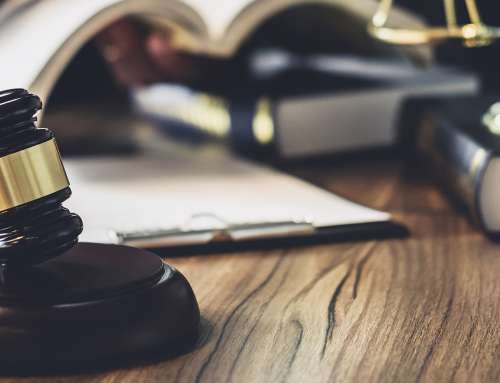What are the causes of Post Traumatic Stress Disorder (PTSD), an anxiety disorder, is likely to affect those who have experienced the trauma and are affected by the event.
It can make you feel trapped with constant fear and painful memories. But no matter what the root cause of your Stress Disorder may be, by seeking help and support, you can cope and combat it.
What are the Causes Of PTSD That You Need to Know

This blog will discuss the fundamentals of PTSD and will also dive into the primary causes of PTSD.
Studies have revealed that people with PTSD continue to produce these hormones even when no danger exists, which may account for some symptoms like heightened alertness and sensitivity to startle triggers. In addition, physical symptoms, including headaches, dizziness, chest pains, and stomach aches, are comparable to those of anxiety.
Want to learn more? Visit here.
Top 3 Causes of Post Traumatic Stress Disorder (Ptsd)
 Following a trauma, you’re likely to feel anxious and sad, as well as stressed out and disengaged. It is important to remember that sudden stress, fear, sadness, and anxiety are normal right after a traumatic experience. However, when the emotional irregularity sustains and you often find yourself in a heightened adrenaline state or feeling anxious about your security, you could suffer from post-traumatic stress.
Following a trauma, you’re likely to feel anxious and sad, as well as stressed out and disengaged. It is important to remember that sudden stress, fear, sadness, and anxiety are normal right after a traumatic experience. However, when the emotional irregularity sustains and you often find yourself in a heightened adrenaline state or feeling anxious about your security, you could suffer from post-traumatic stress.
1. Extended Horizons of Trauma
The majority of people connect PTSD with assaults or wounded soldiers. We agree that military battle is the most frequent cause of PTSD in males. However, studies have proven that any event or series of events that leave you feeling overwhelmed with despair and leaves your heart broken can cause PTSD, mainly if the event is unpredictable and inexplicably challenging to control. For example, the recent pandemic – COVID-19.
After a traumatizing event like a natural disaster, traffic incident, terrorist attack or assault, most people suffer from at least one of the signs of PTSD.
2. Fractured Sense of Security
When your sense of security is shattered, feeling out of balance, disengaged, or even numb is normal. It’s common to experience negative dreams, feel anxious and have difficulty letting go of the thought of the events that occurred. These are all normal reactions to events that happen in different ways. They may last for a few days or even weeks. However, they will gradually ease.
However, if you have post-traumatic stress disorder, your symptoms don’t diminish, and you don’t really feel better with time. Following are the common identifiers resulting from causes of PTSD:
- If you’re stressed, the nervous system reacts to fight or flight
- Your heart rate and blood pressure increase
- You might also feel muscular tightness
- The speed and strength of your reaction will increase
- Immediate dizziness leading to passing out sometimes
Again, the ones listed above are ‘normal human responses as well. It becomes PTSD when you feel stuck at the moment long after the event has passed.
3. The Nervous System Freeze
PTSD occurs when, even after the danger is over, your nervous system remains “stuck,” unable to get back to its average balance, and you’re unable to recover from the experience. Recovery from PTSD requires aiding your nervous system to become “unstuck” so you can recover and heal from the experience.
Furthermore, you can control your symptoms, minimize emotional trauma, and go into your next life phase. With the help of modern-day PTSD treatments and therapies, it is possible to feel secure and get over the anxiety. Specific self-help methods have also proven effective in coping with the emotional rush occurring in PTSD and regaining control of your life.
Final Thoughts
Although PTSD is a psychiatric disorder, it is treatable. However, the first step is to accept your condition and look for a treatment option. PTSD treatments and therapies, simply put, are the aiding tactics for your nervous system and help you better cope by understanding your condition. Always remember
Understanding your history will help you understand why you are who you are. The monsters you keep finding under your bed predominantly tell you to revisit your childhood and address that trauma you keep running away from!
So, our advice will always be to prioritise your mental health and seek professional help. Our PTSD experts are always ready to help you and guide you.




